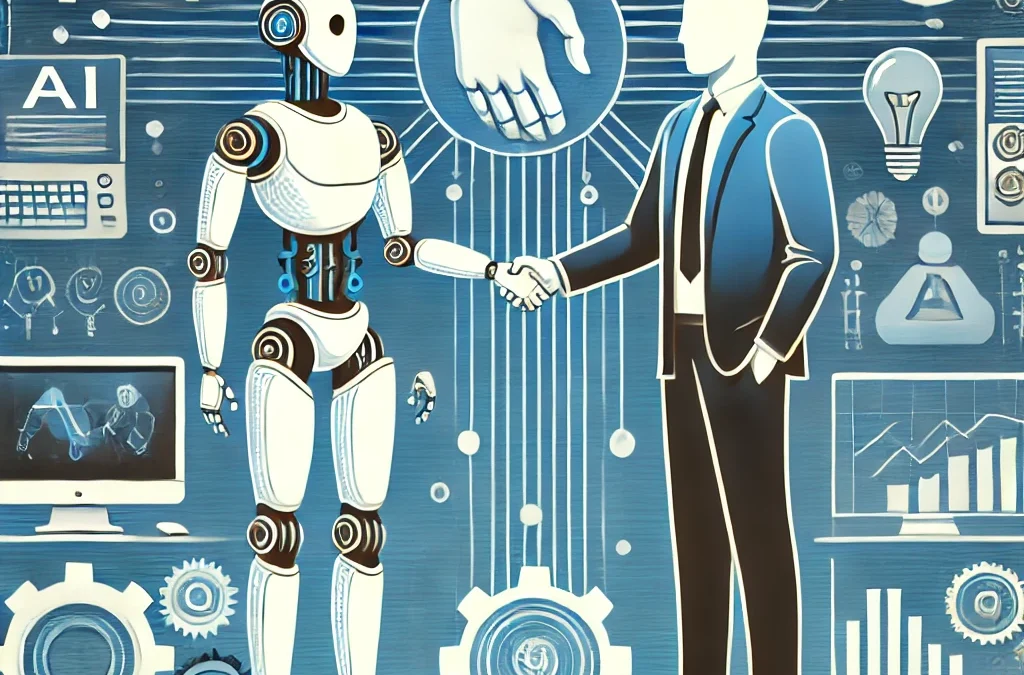Artificial Intelligence (AI) is becoming an essential part of our lives. From virtual assistants like Siri and Alexa to advanced robotics in industries, AI is reshaping the way we live and work. Despite its many benefits, there is a growing fear surrounding AI, especially regarding job security. Many worry that AI will take over their jobs, leaving them unemployed. In this article, we will delve deeper into why people feel this way, explore how AI is transforming workplaces, and provide actionable steps to adapt to this new reality.
Why Are People Scared of AI?
1. Fear of Job Loss
One of the most significant fears about AI is its potential to replace human jobs. Machines and algorithms can often perform tasks more efficiently, consistently, and cost-effectively than humans. Let’s look at some examples:
- Retail: Self-checkout systems in supermarkets are reducing the need for cashiers.
- Customer Support: Chatbots powered by AI are answering customer queries, replacing call center agents.
- Transportation: Self-driving vehicles, such as delivery trucks and taxis, threaten jobs in the transportation industry.
These developments create uncertainty, as people worry about being replaced and losing their livelihoods.
2. Lack of Understanding
AI is a complex technology, and many people do not understand how it works. This lack of knowledge often leads to fear of the unknown. For instance:
- Movies and TV shows sometimes portray AI as a threat, creating fear that robots might take over the world.
- News headlines about AI advancements, like ChatGPT writing articles or MidJourney creating art, make people feel that their skills are becoming obsolete.
3. Rapid Technological Changes
The speed at which AI is advancing is another source of anxiety. Just a few years ago, creative jobs like graphic design, writing, and music composition seemed safe. Now, AI tools like Canva, Jasper, and others are automating these tasks. This rapid shift makes people feel they can’t keep up, leading to stress and fear of being left behind.
How Is AI Changing the Workplace?
1. Automation of Repetitive Tasks
AI is particularly effective at handling repetitive and routine tasks. Some examples include:
- Manufacturing: Robots assemble products quickly and accurately, reducing the need for human labor.
- Data Processing: AI can analyze vast amounts of data in seconds, something that would take humans days or even weeks.
- Healthcare: AI-powered tools help schedule appointments and process patient records efficiently.
2. New Job Opportunities
While AI eliminates some jobs, it also creates new ones. For instance:
- AI Developers and Engineers: Companies need skilled professionals to design, build, and maintain AI systems.
- Data Analysts: AI generates data that requires interpretation and strategic use.
- Ethics Consultants: Organizations now hire experts to ensure AI is used responsibly and ethically.
3. Changing Job Roles
AI often changes the nature of jobs rather than eliminating them entirely. Here are some examples:
- Doctors and AI: AI helps doctors by providing quicker diagnoses, but the doctor’s role in patient care remains irreplaceable.
- Teachers and AI: Educators use AI tools to personalize learning experiences, but their mentorship and emotional support are uniquely human.
- Writers and AI: AI tools like Grammarly and Jasper help writers improve their work, but creativity and storytelling remain human strengths.
What Can We Do About It?
1. Learn New Skills
The best way to stay relevant in the age of AI is to learn new skills. Focus on areas where humans excel over machines, such as:
- Coding and programming to build and manage AI systems.
- Creative skills like design, storytelling, and innovation.
- Problem-solving and critical thinking, which are harder for AI to replicate.
For example, a factory worker might upskill to become a robotics technician or learn programming to manage automated systems.
2. Embrace Lifelong Learning
In a world where technology evolves rapidly, continuous learning is essential. Platforms like Coursera, Udemy, and Khan Academy offer affordable courses in technology, business, and creative fields. Even short certifications can boost your skills and employability.
3. Focus on Human Strengths
While AI is powerful, it lacks certain human qualities such as:
- Empathy: Jobs that require understanding and compassion, like nursing and counseling, are unlikely to be replaced by AI.
- Creativity: Roles in arts, design, and content creation still rely on human imagination.
- Leadership: Decision-making, motivating teams, and managing relationships are uniquely human abilities.
Is AI All Bad?
No, AI is not all bad. In fact, it has numerous benefits that improve our lives:
- Healthcare Advancements: AI helps detect diseases early, improving survival rates.
- Education for All: AI-powered tools make learning accessible to people in remote areas.
- Environmental Protection: AI is used to monitor climate change and develop sustainable solutions.
AI is a tool that, when used responsibly, can make the world a better place.
Examples of Success Stories
1. AI Creating Jobs
- Self-Driving Cars: Companies like Tesla and Waymo have created thousands of jobs in engineering, software development, and maintenance.
- AI Content Tools: Platforms like Canva and Grammarly have created roles for developers, marketers, and trainers.
2. Humans and AI Working Together
- Doctors: Radiologists use AI to analyze medical images quickly, while doctors focus on treatment and care.
- Artists: Many designers use AI tools to enhance their work, combining technology with human creativity.
Conclusion
It is natural to be scared of change, especially when it comes to something as transformative as AI. However, fear often comes from misunderstanding or lack of preparation. By learning more about AI and adapting to the changes it brings, we can turn challenges into opportunities.
AI is not here to take over the world or make humans obsolete. Instead, it’s a tool that can help us work smarter and achieve more. The key is to focus on what makes us unique as humans—our creativity, empathy, and ability to adapt. With the right mindset and skills, we can not only survive in the age of AI but thrive.
